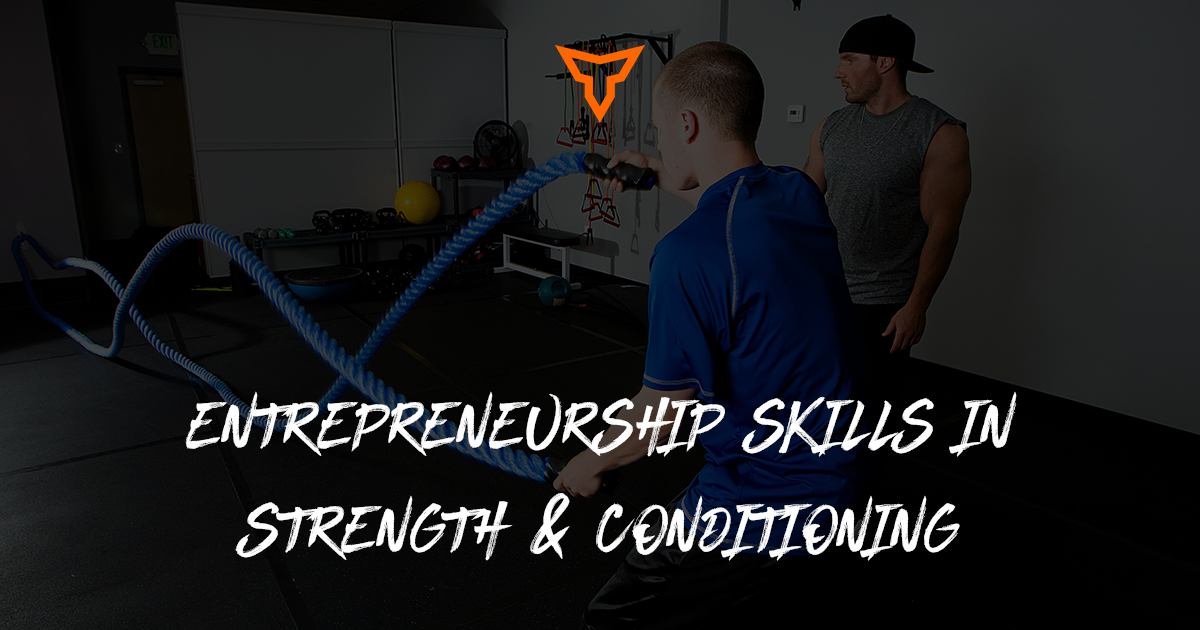5 Things Strength and Conditioning Coaches Should Do At Their New School
In the college setting, the two big times of year to start a new job are January and summer.
In my situation, I am lucky to get the opportunity to help young coaches start and find new jobs. It is one of the most rewarding parts of my career along with helping athletes; I simply enjoy helping coaches develop. If you believe the purpose of coaching is to help people, then helping colleagues and other staff members should be part of the strength and conditioning job description.
Be Positive
Part of being a leader and a coach is getting people to buy into you and your program. If you are a negative person who people do not want to be around, this will be hard. One way to be positive is to say "Yes" more often than you say "no." You will never have enough space, staff, budget and equipment as a non-Power 5 strength coach. The key is to not complain and simply get the job done with a smile on your face. If you have a problem, think of the solution to the problem and get it done.
Guard your Desk
I am a firm believer that if you do not have something to do there is no point in being there. Having a work/life balance is one of biggest reasons people leave the strength and conditioning field. However, you have to earn the right to create your work-life balance first. The first couple of months in a new position will you to always be present; getting in early, staying late and minimal time off. If you are not around, you cannot demonstrate your value to administration, coaches and athletes at a time where you need to demonstrate rather quickly. Be the first to volunteer to get a task done and set the tone of being the hardest worker on staff/department in order to afford yourself work-life balance later on in your tenure.
Are You Prepared?
This is a simple question with a not so simple answer. Some questions you can continue asking yourself before answering are: Did you put in the work before the team or athlete showed up? Are you set up? Are you early? Are you prepared for the unexpected? Have you prepared what the message is for the day so that the message is clear and concise once the athletes walk through your doors? You are responsible for athletic development, and what/how things on your team are done; that responsibility requires extreme preparation prior to when the training is taking place.
Communicate, Communicate and Communicate
You really do not want be the coach that is in their "weight room silo." At a minimum, the strength coach should communicate weekly with Athletic Trainers, head coaches and assistant coaches. Communication is one of the biggest life lines for any strength and conditioning coach. Everyone should understand "what" and "why" you are doing something on a given workout at that time of year. Communication will solve the majority of all problems strength coaches face in a collegiate and administrative environment. In the end, you are responsible for communicating what matters to your athletes, coaches and administration.
Have a Vision for Yourself and Department
Be you. Athletes and coaches can see if you are fake but will respect you more for being yourself. If you are high-energy person, then let that show. If you take the approach of teaching and less yelling approach, then be that person. Blend different styles of coaching together to make what you are comfortable coaching. Have a vision on where staff size, salary, and equipment should be 1 year, 3 years, +5 years from taking the job. Personally, you should have an idea of whether this is a long-term job or a 1-2 year set up/jumper job. Chances are: you will work for a lot of different universities and people so you need to keep your own growth and development at the forefront of what you do.
It is imperative to share your vision with the athletic administration and see if it lines up with their vision for your position. I have been at places where there was no potential for growth in salary, staff size and equipment which makes it very hard to experience personal growth. Just as potential employers ask candidates, a great question to ask the hiring committee during the interview process is where to they see the strength and conditioning department in 3-5 years. Although it's hard to turn down a job in our field, if their vision clearly does not meet yours then it may be worth holding out for a partnership that will benefit your career in the long-run.
Subscribe to our blog
Subscribe to receive the latest blog posts to your inbox every week.
Related posts

Entrepreneurship Skills in Strength & Conditioning

Financial Literacy for Strength Coaches

